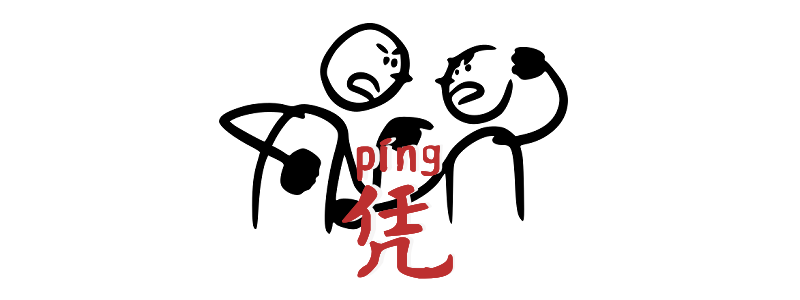Grammar Point:
The word 凭 píng in Chinese is a preposition or verb used to indicate “relying on,” “based on,” or “depending on.” It can also express “by means of” or “according to.” It’s versatile and commonly used in formal or semi-formal contexts.
Structure
凭 píng + N / Noun Phrase + V
It indicates using something as means or evidence.
憑他的能力,通過這次中文考試沒有問題凭他的水平,通过这次汉语考试没有问题
With his level, he will have no problem passing this Chinese language exam.
你只憑他說的一句話,就決定跟我分手嗎?你只凭他说的一句话,就决定跟我分手吗?
Do you decide to break up with me based on one single word he said?
憑經驗進行判斷,不一定都會是正確的凭经验进行判断,不一定都会是正确的
Judgment by experience may not always be correct.
憑會員卡享有折扣凭会员卡享有折扣
Get discount with membership card.
Adding 着 zhe makes the sentence smoother and more colloquial, particularly in spoken language. It slightly softens the tone and often adds a sense of ongoing reliance or emphasis on the noun.
她憑著流利的中文找到了一份好工作她凭着流利的中文找到了一份好工作
She found a good job thanks to her fluent Chinese.
他憑著多年經驗解決了這個難題他凭着多年经验解决了这个难题
He solved this problem based on years of experience.
她憑著真誠的態度贏得了大家的信任她凭着真诚的态度赢得了大家的信任
She earned everyone’s trust through her sincere attitude.
凭 píng + Verb Phrase
憑我教中文教了二十年,我告訴你這語法一定不對凭我教中文教了二十年,我告诉你这语法一定不对
I’ve been teaching Chinese for 20 years, and I’m telling you that the grammar must be incorrect.
憑我們公司已經跟你們合作多年,難道不能給一點折扣嗎?凭我们公司已经跟你们合作多年,难道不能给一点折扣吗?
We have been working with you for many years, can’t we give a little discount?
憑我把你從小養到大,你有什麼小心思是我不知道的凭我把你从小养到大,你有什么小心思是我不知道的
I raised you from a baby—do you really think there’s anything you can hide from me?
憑那麼多藝人都幫他背書,就知道這家公司財力雄厚凭那么多艺人都帮他背书,就知道这家公司财力雄厚
With so many celebrities endorsing him, it’s clear that this company has strong financial backing.
凭 píng + 什么 shénme
This structure is often used in questions or rhetorical expressions to challenge, question, or justify the basis or reason for something. It is commonly used in colloquial tone to ask “Based on what?” or “Why?”
你憑什麼罵我,你又不是我的誰你凭什么骂我,你又不是我的谁
What gives you the right to yell at me? You’re not anyone to me!
你憑什麼這樣說?你凭什么这样说?
What gives you the right to say that?
他憑什麼對我生氣,做錯事的明明是他他凭什么对我生气,做错事的明明是他
Why is he mad at me? He’s the one who messed up!
大家都要加班,憑什麼他不用?大家都要加班,凭什么他不用?
Why does he get out of working overtime when everyone else has to?
憑什麼你可以加薪,我卻不行?凭什么你可以加薪,我却不行?
Why can you get a raise, but I can’t?
A Song Named 凭什么 píngshénme
憑什麼讓我的全世界定格凭什么让我的全世界定格
Why should you be the one to stop my whole world?
憑什麼不能夠現在就選擇凭什么不能够现在就选择
Why can’t I choose right now?
憑什麼讓我喜歡這種拉扯凭什么让我喜欢这种拉扯
Why do you ask me to enjoy this tug-of-war?
憑著結局我們再沒有瓜葛凭着结局我们再没有瓜葛
With the ending, we no longer have any ties.


